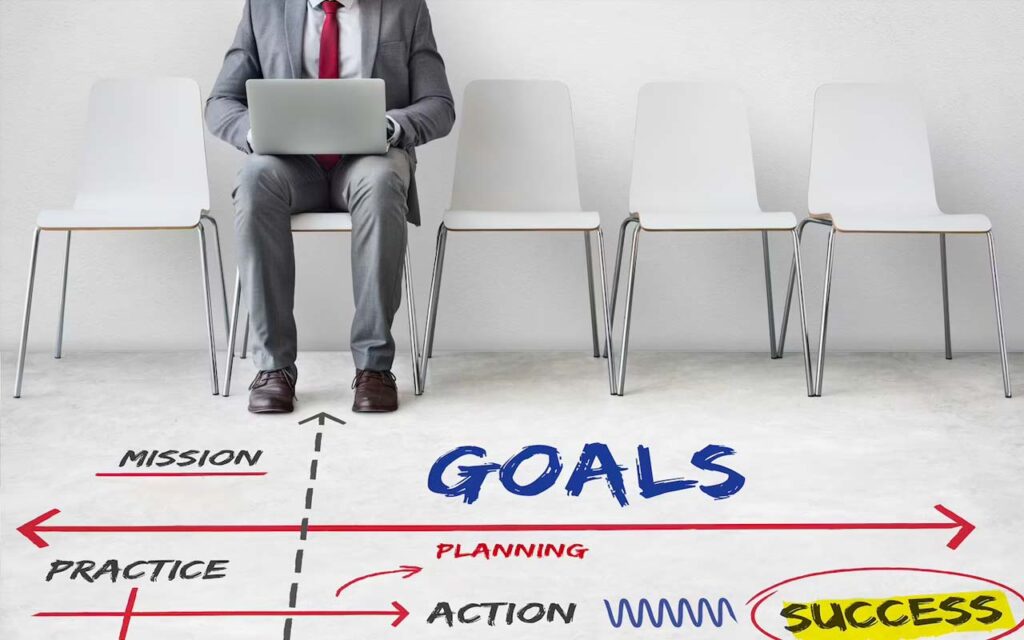My Blog

Browse Posts
- ReLaunch To Win
Assertiveness is a communication style that involves expressing one’s thoughts, feelings, and needs in a clear, direct, and respectful manner, while also respecting the rights and opinions of others. Assertive communication is a powerful tool for personal and professional growth, as it can help individuals to build stronger relationships, set clear boundaries, and achieve their goals.
Assertiveness involves being confident in oneself and one’s abilities, and expressing oneself clearly and effectively. It also involves being able to stand up for oneself and one’s rights, while also respecting the rights and opinions of others. Assertiveness is a balance between passivity and aggression, and involves finding a way to communicate that is assertive without being confrontational.
Here are some tips on how to become more assertive:
Recognize your own worth: One of the keys to assertiveness is recognizing your own worth and value. This means understanding your own needs, wants, and desires, and recognizing that they are just as important as those of others.
Practice expressing yourself: One of the best ways to become more assertive is to practice expressing yourself. This could involve practicing with a friend or family member, or writing down your thoughts and feelings in a journal.
Use “I” statements: When communicating with others, it’s important to use “I” statements rather than “you” statements. This helps to express your own thoughts and feelings without placing blame or making accusations.
Set clear boundaries: Assertiveness involves setting clear boundaries and communicating them clearly to others. This helps to ensure that your needs and wants are respected, while also respecting the rights and opinions of others.
Learn to say “no”: Learning to say “no” is an important part of assertiveness. This involves setting limits and boundaries, and saying “no” when something doesn’t align with your needs or values.
There are many situations where it is appropriate to be assertive. Here are a few examples:
In the workplace: Being assertive in the workplace can help individuals to communicate effectively with coworkers, managers, and clients. This could involve setting clear boundaries, expressing opinions, or standing up for oneself.
In personal relationships: Assertiveness can also be important in personal relationships. This could involve setting boundaries with friends or family members, or expressing one’s feelings in a clear and direct manner.
In negotiations: Being assertive can be important in negotiations, such as when discussing a raise or negotiating a contract. This involves expressing one’s needs and desires clearly and respectfully.
In everyday interactions: Assertiveness can also be important in everyday interactions, such as when dealing with customer service representatives or expressing one’s needs in a public setting.
In conclusion, assertiveness is an important communication skill that can help individuals to build stronger relationships, set clear boundaries, and achieve their goals. To become more assertive, individuals can practice expressing themselves, set clear boundaries, and learn to say “no.” Assertiveness can be appropriate in a variety of situations, including in the workplace, in personal relationships, in negotiations, and in everyday interactions. By developing this skill, individuals can improve their communication and achieve greater success in their personal and professional lives.
- ReLaunch To Win
The human mind is a complex system that controls our thoughts, emotions, and behaviors. The mind is divided into two parts, the conscious and the subconscious mind. The conscious mind is the part of our mind that is aware of our thoughts, feelings, and surroundings. The subconscious mind, on the other hand, is the part of our mind that operates below the level of conscious awareness. It controls many of our thoughts, emotions, and behaviors without us even realizing it.
The subconscious mind is responsible for many of our automatic behaviors, habits, and beliefs. It operates like a computer program that has been programmed by our experiences, beliefs, and values. The subconscious mind is constantly receiving information from our environment and processing it, often without our conscious awareness. This information is then used to make decisions and influence our behavior.
The subconscious mind is much more powerful than the conscious mind, and it can often override the conscious mind’s decisions. This is because the subconscious mind is responsible for our survival instincts and is always looking out for our best interests. It is programmed to avoid pain and seek pleasure, so it will always steer us towards actions that are pleasurable and away from actions that are painful.
The subconscious mind is also responsible for many of our beliefs and values. These beliefs and values are often formed early in life and are deeply ingrained in our subconscious mind. They can have a powerful influence on our behavior and can be difficult to change.
For example, let’s say you were raised in a family that valued hard work and achievement. These values would have become deeply ingrained in your subconscious mind, and you would likely feel compelled to work hard and achieve success in your life. This value system would be so deeply embedded in your subconscious mind that you may not even be aware of it. It would simply feel like a natural part of who you are. In conclusion, the subconscious mind plays a powerful role in controlling our thoughts, emotions, and behaviors. It is responsible for many of our automatic behaviors, habits, and beliefs. The subconscious mind operates like a computer program that has been programmed by our experiences, beliefs, and values. It is constantly receiving information from our environment and using that information to influence our behavior. The subconscious mind is much more powerful than the conscious mind and can often override the conscious mind’s decisions. Understanding how the subconscious mind works can help us better understand ourselves and make positive changes in our lives.
- ReLaunch To Win
Learning is a fundamental aspect of human growth and development. It is the process of acquiring new knowledge, skills, and behaviors, and it is an essential component of personal and professional growth. Learning helps individuals to adapt to new environments, improve their critical thinking abilities, and broaden their perspectives.
Learning matters because it provides individuals with the tools they need to navigate the world around them. It allows them to stay informed about new developments and changes in their environment, and it helps them to be more successful in their personal and professional lives. Learning also has significant health benefits, such as improving cognitive function and reducing the risk of age-related cognitive decline.
Learning benefits individuals in many ways. Here are some of the ways learning can benefit a person:
Career advancement
Learning new skills and gaining new knowledge can help individuals advance in their careers. It can make them more competitive in the job market and increase their earning potential.
Personal growth
Learning can help individuals grow and develop personally. It can help them to gain new perspectives, challenge their beliefs, and become more open-minded.
Improved cognitive function
Learning has been shown to improve cognitive function, including memory, attention, and problem-solving abilities.
Health benefits
Learning can have significant health benefits, such as reducing the risk of age-related cognitive decline and improving overall well-being.
To fast learn new skills and gain new knowledge, individuals can do the following:
Set clear goals – Setting clear goals is essential for effective learning. It provides direction and motivation, and it helps individuals to focus on what they need to learn.
Develop a learning plan – A learning plan outlines the steps needed to achieve learning goals. It includes specific actions, timelines, and resources needed to achieve those goals.
Use a variety of learning methods – Individuals should use a variety of learning methods to enhance their learning experience. This could include reading, watching videos, attending workshops, and practicing skills.
Find a mentor or coach – A mentor or coach can provide guidance, support, and feedback, and help individuals to identify areas for improvement.
Practice regularly – Regular practice is essential for learning new skills. It helps to reinforce new knowledge and skills and builds confidence and competence.
In conclusion, learning is essential for personal and professional growth. It provides individuals with the tools they need to navigate the world around them, improve their cognitive function, and broaden their perspectives. To fast learn new skills and gain new knowledge, individuals should set clear goals, develop a learning plan, use a variety of learning methods, find a mentor or coach, and practice regularly. By making learning a priority, individuals can gain new insights, improve their abilities, and achieve their personal and professional goals.
- ReLaunch To Win
Sustainability refers to the ability to meet the needs of the present without compromising the ability of future generations to meet their own needs. It is a concept that has gained increasing attention in recent years as the negative impacts of human activity on the environment have become more apparent.
Sustainability matters because our current way of life is not sustainable in the long run. The earth’s natural resources are finite, and we are rapidly depleting them. Additionally, human activity has resulted in pollution and climate change, which are having significant impacts on the planet’s ecosystems and biodiversity.
To ensure that we can continue to meet our needs in the future, we must shift our focus to more sustainable practices. This requires a collective effort from individuals, businesses, and governments to reduce our environmental impact and ensure that we are using resources in a responsible and sustainable way.
Individuals can play a significant role in promoting sustainability in their everyday lives. Here are a few things that people can do to self-lead and self-manage to play their part in sustainability:
Reduce energy consumption
There are many ways to reduce energy consumption in the home, such as using energy-efficient light bulbs, turning off lights and electronics when not in use, and reducing heating and cooling usage. Additionally, consider investing in renewable energy sources such as solar panels or wind turbines.
Conserve water
Water is another finite resource that is essential for life. Individuals can conserve water by taking shorter showers, fixing leaks, and using drought-resistant landscaping.
Reduce waste and consume with sustainability in mind
Reduce, reuse, and recycle. These three R’s are crucial in reducing waste and conserving resources. Individuals can reduce waste by using reusable bags, water bottles, and food containers, and by composting food waste.
Choose sustainable products
When purchasing products, consider the environmental impact of the product’s production, transportation, and disposal. Choose products made from sustainable materials, such as bamboo or recycled materials, and support companies that prioritize sustainability.
Support local businesses, especially those creating sustainability-centric products
Supporting local businesses can have a positive impact on the environment by reducing the transportation of goods and supporting sustainable practices. Additionally, purchasing locally grown food can reduce the carbon footprint associated with transportation.
In conclusion, sustainability is essential for the health and well-being of both current and future generations. By taking small steps to reduce energy consumption, conserve water, reduce waste, choose sustainable products, and support local businesses, individuals can play a significant role in promoting sustainability in their everyday lives. It is important to remember that sustainability is an ongoing journey and requires a collective effort to ensure a more sustainable future.
Liked this article? I post new articles every month – follow my blog for more.
- ReLaunch To Win
“Love yourself first, and everything else falls into line. You really have to love yourself to get anything done in this world.” -Lucille Ball
Loving yourself is often considered a cliche or self-indulgent, but it is, in fact, a fundamental step in living a happy and fulfilling life. Without self-love, it can be challenging to appreciate others and give back to them. Moreover, self-love can be an ongoing journey with many ups and downs.
One of the most important aspects of self-love is treating yourself with kindness and respect. It involves embracing your strengths and accepting your weaknesses. You must take care of your body, mind, and spirit by engaging in activities that make you feel good. And when you feel good about yourself, it will radiate out and positively affect the people around you.
The story of John, a successful businessman, is a prime example of how loving oneself can lead to loving others.
John had always been focused on his career and personal achievements. His daily routine revolved around work and fitness, leaving no time for socializing or relaxation. Although he was successful, John often felt lonely and unfulfilled.
One day, John met a woman named Emily, who challenged his worldview. Emily was a kind and compassionate person who valued relationships and human connections over material possessions. Through Emily, John learned the value of love and relationships. He realized that he had been missing out on the most important aspects of life by focusing solely on his personal achievements.
As John began to love Emily, he found that he was also learning to love himself. He began to prioritize his mental and emotional health, taking time to meditate and connect with himself. He started to treat himself with more kindness and respect, engaging in activities that brought him joy.
With this newfound self-love, John was better able to connect with others and show them love and kindness. He became more empathetic, listening and understanding the needs of his colleagues and friends. He was more open to new experiences, which allowed him to learn from others and form deeper connections.
Through his journey of self-love, John had come to understand that loving oneself is not a selfish act, but rather a necessary step in loving others. When you take care of yourself, you are better equipped to give back to others, which can lead to deeper and more meaningful relationships.
In conclusion, loving oneself is not only important for personal growth and happiness but is also a crucial step in loving others. By treating yourself with kindness and respect, you can better connect with those around you and form deeper relationships. Take time to engage in activities that make you feel good, prioritize your mental and emotional health, and be open to new experiences. Loving yourself is an ongoing journey, but it is one that is worth taking.
- ReLaunch To Win
Fear is a basic emotion that arises in response to a perceived threat, whether real or imagined. It is a natural response that helps to protect us from harm by activating our “fight or flight” response. However, when fear becomes excessive or irrational, it can interfere with our daily lives and limit our potential.
The origins of fear can be traced back to our evolution as a species. Our ancestors needed to be able to quickly recognize and respond to potential dangers in their environment in order to survive. Therefore, fear became an innate response to certain stimuli such as predators, loud noises, or the dark.
However, fear can also be learned through experience. For example, if someone has had a traumatic experience, they may develop a phobia or anxiety related to that event. Similarly, social fears may arise from past experiences of judgment or rejection from others.
Fear can also be influenced by cultural and societal factors. For example, people may fear certain foods, animals, or situations because of cultural beliefs or myths.
While fear can be a helpful emotion in some situations, it can also hold us back from achieving our goals and realizing our potential. Here are some ways that people can overcome their fears to become more successful in life:
Identify the Fear: The first step in overcoming fear is to identify what is causing it. This could involve reflecting on past experiences, recognizing patterns in your thoughts and behaviors, or seeking the help of a therapist or counselor.
Challenge Negative Thoughts: Fear is often fueled by negative thoughts and beliefs about ourselves, others, or the world around us. To overcome fear, it is important to challenge these negative thoughts and replace them with more positive and empowering ones.
Face the Fear: Avoiding the things that we fear can actually reinforce our fears and make them stronger. To overcome fear, it is important to gradually face the things that make us afraid. This could involve taking small steps towards our goals, seeking support from others, or using relaxation techniques to manage our anxiety.
Develop Coping Strategies: Overcoming fear is not easy, and it is important to have coping strategies in place to manage our anxiety and stress. This could involve deep breathing exercises, meditation, visualization, or other relaxation techniques.
Seek Support: Overcoming fear can be a challenging and sometimes overwhelming process. It is important to seek support from others who can offer encouragement, guidance, and advice. This could involve talking to a trusted friend or family member, joining a support group, or seeking the help of a therapist or counselor. In conclusion, fear is a natural and necessary emotion that helps us to protect ourselves from danger. However, when fear becomes excessive or irrational, it can hold us back from achieving our goals and realizing our potential. By identifying our fears, challenging negative thoughts, facing our fears, developing coping strategies, and seeking support, we can overcome our fears and become more successful in life.
- ReLaunch To Win
The job market is constantly evolving, and the skills that are in demand today may not be as relevant tomorrow. Therefore, it is essential for professionals to future-proof their careers by developing new skills and knowledge that will enable them to adapt to changing job requirements and industry trends. Here are some reasons why future-proofing your career is crucial:
Maintain Relevance By future-proofing your career, you can stay relevant in your field and avoid becoming obsolete. This means keeping up-to-date with the latest technological advancements, industry trends, and changes in regulations or policies.
Stay Competitive As the job market becomes more competitive, it’s important to develop a diverse skillset that sets you apart from other candidates. Future-proofing your career can help you stay competitive and increase your value to potential employers.
Career Growth Future-proofing your career can also help you achieve career growth and advancement. By acquiring new skills and knowledge, you may be eligible for promotions or opportunities for career progression.
Here are some steps that professionals can take to future-proof their careers:
1. Develop a Growth Mindset
The first step in future-proofing your career is to adopt a growth mindset. This means being open to learning new things, seeking out new challenges, and being willing to take on new responsibilities. By having a growth mindset, you can position yourself to adapt to changes and develop new skills throughout your career.
2. Invest in Education and Training
Continuing education and training is essential for future-proofing your career. This could mean attending conferences, taking courses or certifications, or pursuing a degree in a related field. For example, an accountant could pursue a certification in data analytics to stay up-to-date with the latest tools and trends in the industry.
3. Stay Up-to-Date with Industry Trends
It’s also important to stay informed about the latest trends and developments in your industry. This could mean attending industry events, following thought leaders on social media, or reading industry publications. For example, a software developer may follow industry blogs and podcasts to stay up-to-date with the latest programming languages and frameworks.
4. Build a Professional Network
Building a strong professional network is crucial for career development and future-proofing. This could mean attending networking events, joining professional organizations, or connecting with colleagues on social media. For example, a marketing professional may attend industry conferences to meet potential clients and partners and build their network.
5. Embrace Technology
Finally, embracing technology is essential for future-proofing your career. This could mean learning new software programs or tools, experimenting with new technologies, or adopting new ways of working. For example, a graphic designer may learn how to use virtual reality technology to create immersive designs.
In conclusion, future-proofing your career is essential for staying relevant, competitive, and secure in today’s rapidly changing job market. By developing a growth mindset, investing in education and training, staying up-to-date with industry trends, building a professional network, and embracing technology, professionals can position themselves for success and achieve career growth and advancement.
- ReLaunch To Win
An entrepreneur is an individual who takes on the financial and personal risk of starting and managing a business venture with the aim of making a profit. They are typically characterized by their ability to identify a gap or opportunity in the market and develop innovative solutions to address it. Entrepreneurs often possess strong leadership and management skills, as well as a willingness to take calculated risks and adapt quickly to changes in the business environment.
Entrepreneurs can come from any background and may start businesses in a variety of industries, including technology, finance, healthcare, and manufacturing, among others. Successful entrepreneurs often exhibit traits such as creativity, resilience, persistence, and the ability to learn from failure. They may also have strong networking and communication skills, which can help them build relationships with investors, customers, and other stakeholders.
Successful entrepreneurs have a unique set of qualities and characteristics that set them apart from others. Here are some of the things that successful entrepreneurs do differently:
They are Risk Takers: Successful entrepreneurs are not afraid to take risks. They understand that failure is a natural part of the process and are willing to take calculated risks to achieve their goals. They are not afraid to step outside of their comfort zone and try something new. For example, Elon Musk, the founder of Tesla, took a risk by investing in the development of electric cars when the market was dominated by gasoline-powered vehicles. His risk paid off, and Tesla is now one of the most successful electric car companies in the world.
They are Visionaries: Successful entrepreneurs have a clear vision of what they want to achieve. They have a long-term plan and a strategy for achieving their goals. They are able to see the big picture and are not distracted by short-term setbacks or obstacles. For example, Jeff Bezos, the founder of Amazon, had a clear vision of creating an online marketplace that would offer customers a wide selection of products at competitive prices. He focused on achieving his long-term goal and built Amazon into one of the largest companies in the world.
They are Persistent: Successful entrepreneurs are persistent in their pursuit of their goals. They don’t give up easily and are willing to work hard to achieve success. They are able to overcome obstacles and setbacks and continue moving forward. For example, Colonel Sanders, the founder of KFC, was rejected by over 1,000 restaurants before he found a partner willing to invest in his recipe. He was persistent in his pursuit of his goal and eventually built KFC into a successful global franchise.
They are Adaptable: Successful entrepreneurs are adaptable and able to adjust their strategies and plans as needed. They are able to pivot and change course when they encounter obstacles or when the market changes. For example, when Steve Jobs returned to Apple in the late 1990s, he realized that the company’s product lineup was outdated and needed to be revamped. He made the decision to focus on developing new products, such as the iPod and iPhone, which transformed Apple into one of the most successful companies in the world.
They are Innovative: Successful entrepreneurs are innovative and are always looking for new and better ways to do things. They are able to identify opportunities where others see obstacles. They are not afraid to challenge the status quo and disrupt industries. For example, Mark Zuckerberg, the founder of Facebook, saw an opportunity to connect people in a new and innovative way. He created a social networking platform that transformed the way people communicate and share information. Successful entrepreneurs are always on the look out for new ideas, new learnings, new market demands. They develop an open mind set to any situation which in turn makes them master problem solvers. They have a growth mind of growing which driven their passion to achieve more with less.
- ReLaunch To Win
Artificial intelligence (AI) refers to the ability of machines to perform tasks that would typically require human intelligence, such as recognizing patterns, making predictions, or solving problems. Automation, on the other hand, refers to the use of technology to perform tasks that would otherwise require human intervention.
Both AI and automation are rapidly transforming many industries, and their impact on the job market is a topic of much debate. While some experts predict that automation and AI will lead to significant job losses, others argue that they will create new opportunities and lead to the emergence of new industries.
The Impact of Automation and AI on Jobs:
Automation and AI are already having a significant impact on the job market, particularly in industries such as manufacturing, transportation, and customer service. Many routine tasks, such as data entry or assembly line work, can now be performed by machines, leading to job losses in these industries.
However, it is important to note that automation and AI are also creating new jobs and industries. For example, the rise of e-commerce has led to a significant increase in demand for workers in the logistics and fulfillment industries. Similarly, the development of autonomous vehicles has created new job opportunities in areas such as engineering and software development.
In addition, the increasing use of AI in industries such as healthcare and finance has the potential to improve efficiency and lead to better outcomes for patients and customers. This, in turn, could lead to the creation of new jobs and opportunities for workers.
What Can People Do to Grow in Their Careers?
In light of the potential impact of automation and AI on the job market, it is important for workers to adapt and develop new skills to remain competitive. Here are some tips for growing in your career in the age of automation and AI:
Focus on Developing Soft Skills: While automation and AI are becoming increasingly adept at performing routine tasks, they still struggle with tasks that require human skills such as empathy, creativity, and critical thinking. Therefore, workers should focus on developing these soft skills that are less likely to be automated.
Embrace Lifelong Learning: The rapid pace of technological change means that workers must be prepared to continually learn and adapt to new technologies and job requirements. This could involve taking courses, attending workshops or conferences, or pursuing additional degrees or certifications.
Be Open to Change: As the job market evolves, workers must be willing to embrace change and pursue new opportunities. This could involve changing industries or career paths, taking on new roles within an organization, or pursuing entrepreneurial ventures.
Develop Technical Skills: While soft skills are important, workers should also develop technical skills that are in demand in today’s job market. This could involve learning programming languages, data analysis skills, or digital marketing skills.
Seek Out Mentorship: Mentorship can be a valuable resource for workers looking to grow in their careers. A mentor can provide guidance, advice, and connections that can help workers navigate the changing job market and find new opportunities.
In conclusion, the rise of automation and AI is transforming the job market and creating both opportunities and challenges for workers. To remain competitive in this changing landscape, workers must be prepared to adapt, develop new skills, and embrace lifelong learning. By focusing on soft skills, embracing change, developing technical skills, and seeking out mentorship, workers can position themselves for success in the age of automation and AI.
- ReLaunch To Win
Failure is often seen as a negative experience, but it can be a valuable learning opportunity that leads to future success. Learning from failure involves analyzing what went wrong, identifying areas for improvement, and taking steps to make changes for the future.
The below five steps you can take to learn from your failures and ultimately win in life:
Step 1: Reframe failure as a learning opportunity
Instead of seeing failure as a reflection of their worth or abilities, individuals should reframe it as a chance to learn and grow. Failure can provide valuable feedback on what works and what doesn’t, and can help individuals to identify areas for improvement. By adopting a growth mindset and viewing failure as an opportunity to learn, individuals can develop resilience and a stronger sense of self.
Step 2: Identify the cause of the failure
In order to learn from failure, individuals need to understand what went wrong and why. This involves reflecting on the situation and analyzing the factors that led to the failure. By identifying the root cause of the failure, individuals can take steps to prevent it from happening again in the future.
Step 3: Develop a plan for improvement
Once the cause of the failure has been identified, individuals should develop a plan for improvement. This may involve setting specific goals, acquiring new skills or knowledge, or making changes to their approach or mindset. The plan should be actionable, with specific steps that can be taken to improve the situation.
Step 4: Take action and persevere
Learning from failure requires taking action and persevering through setbacks. Individuals should be willing to put in the hard work required to achieve their goals, and to persevere through obstacles and setbacks along the way. This may involve seeking out support from others, staying focused on the end goal, and maintaining a positive attitude.
Step 5: Celebrate successes along the way
Finally, it’s important to celebrate successes along the way, no matter how small. Recognizing progress and achievements can help to maintain motivation and build confidence in one’s abilities. By celebrating successes and staying focused on the end goal, individuals can continue to learn and grow from their failures and ultimately win in life.
In summary, learning from failure is an important part of personal growth and development. By reframing failure as a learning opportunity, identifying the cause of the failure, developing a plan for improvement, taking action and persevering, and celebrating successes along the way, you can learn from your failures and ultimately win in life. While failure can be difficult to navigate, it can also provide valuable feedback and insights that can help you to become stronger and more successful in the long run.
- ReLaunch To Win
Setting goals is important because it helps individuals create a sense of direction and purpose in their lives. Goals provide a clear target to aim for, which can help individuals focus their efforts and stay motivated over time. When a person establishes a goal, they are essentially creating a roadmap that outlines the steps needed to achieve the desired outcome.
One reason why setting goals is important is that it can help individuals clarify their priorities and values. When a person sets a goal, they are essentially identifying what is important to them and what they want to achieve in life. This can help individuals focus their energy and resources on the things that matter most to them, which can lead to a greater sense of fulfillment and satisfaction.
Another reason why setting goals is important is that it can help individuals overcome obstacles and challenges. When a person sets a goal, they are essentially committing to taking action towards achieving that goal. This can help individuals stay motivated and persistent in the face of setbacks and challenges, which can increase their chances of success.
Setting goals can also help individuals develop new skills and abilities. When a person sets a goal that is challenging and requires them to stretch beyond their comfort zone, they are essentially pushing themselves to learn and grow in new ways. This can help individuals develop new skills and abilities that can be useful in other areas of their lives.
In addition, setting goals can help individuals increase their confidence and self-esteem. When a person sets a goal and takes action towards achieving it, they are essentially proving to themselves that they are capable of making positive changes in their lives. This can increase their confidence and self-esteem, which can have positive ripple effects in other areas of their lives.
To get the most out of goal setting, it is important to set clear and specific goals. Clear goals provide a concrete target to aim for and help individuals focus their efforts on the specific actions needed to achieve the desired outcome. Specific goals are also more motivating than vague or general goals, as they provide a clear sense of progress and achievement.
It is also important to set goals that are challenging but realistic. Goals that are too easy may not provide enough motivation or a sense of accomplishment, while goals that are too difficult may be demotivating or lead to feelings of failure.
In order to achieve their goals, individuals may need to develop certain skills or habits. For example, a person who wants to run a marathon may need to develop a consistent running routine, build up their endurance gradually, and incorporate strength training and stretching into their workout routine.
Finally, it is important to track progress towards achieving goals. This can help individuals stay motivated and make adjustments as needed to stay on track towards achieving their desired outcomes In summary, setting goals is important because it can help individuals clarify their priorities, overcome obstacles, develop new skills, and increase their confidence and self-esteem. To get the most out of goal setting, it is important to set clear and specific goals, break larger goals down into smaller tasks, set goals that are challenging but achievable, identify the skills or habits needed to achieve goals, and track progress towards achieving.
- ReLaunch To Win
Having a growth mindset means believing that one’s abilities and intelligence can be developed and improved through hard work, dedication, and learning from mistakes. This is in contrast to a fixed mindset, which believes that one’s abilities and intelligence are largely predetermined and cannot be changed.
Having a growth mindset is important for success in life because it encourages individuals to embrace challenges, persist through obstacles, and see failure as an opportunity for growth and learning. Individuals with a growth mindset are more likely to take risks, seek out new experiences, and believe that they can improve their abilities and achieve their goals.
The five steps you can take to develop a growth mindset:
Step 1: Embrace challenges and see them as opportunities for growth
Individuals with a growth mindset embrace challenges and see them as opportunities to learn and improve. They do not shy away from difficult tasks or situations, but instead see them as a chance to develop new skills and abilities. By embracing challenges and pushing themselves out of their comfort zone, individuals can build resilience and confidence in their ability to learn and grow.
Step 2: View failure as a learning opportunity
Individuals with a growth mindset view failure as a natural part of the learning process. They do not see failure as a reflection of their abilities or intelligence, but rather as an opportunity to learn and improve. By analyzing what went wrong and how they can improve in the future, individuals can use failure as a stepping stone towards success.
Step 3: Cultivate a passion for learning
Individuals with a growth mindset have a passion for learning and are always seeking out new knowledge and experiences. They recognize that learning is a lifelong process and that there is always room for improvement. By cultivating a passion for learning and seeking out new experiences, individuals can continue to develop their skills and abilities over time.
Step 4: Practice persistence and hard work
Individuals with a growth mindset understand that success requires persistence and hard work. They do not give up easily in the face of obstacles or setbacks, but instead continue to work hard and put in the effort required to achieve their goals. By practicing persistence and hard work, individuals can develop a sense of resilience and determination that can help them overcome challenges and achieve success.
Step 5: Surround yourself with supportive people
Finally, individuals with a growth mindset surround themselves with supportive people who encourage and motivate them to continue learning and growing. These may be friends, family members, mentors, or colleagues who share their values and goals. By surrounding yourself with supportive people, you can stay motivated and inspired to continue pursuing your dreams and aspirations.
In summary, having a growth mindset is important for success in life because it encourages individuals to embrace challenges, persist through obstacles, and view failure as an opportunity for growth and learning. To develop a growth mindset, you can take steps such as embracing challenges, viewing failure as a learning opportunity, cultivating a passion for learning, practicing persistence and effort, and surrounding yourself with supportive people. By adopting a growth mindset, individuals can achieve their goals, develop new skills and abilities, and lead a more fulfilling and successful life.
- ReLaunch To Win
Success in life is a complex and multifaceted concept that can be influenced by a variety of factors. Some people succeed in life while others fail due to a combination of personal traits, environmental factors, and external circumstances.
One important factor that can contribute to success is mindset. People who have a growth mindset, meaning they believe they can develop their abilities and improve through hard work and dedication, are more likely to succeed than those with a fixed mindset, who believe that their abilities are fixed and cannot be changed. A growth mindset allows individuals to embrace challenges, learn from failures, and persist in the face of setbacks.
Another important factor that can contribute to success is goal setting. People who set clear, specific, and challenging goals are more likely to achieve them than those who do not. Effective goal setting involves breaking down larger goals into smaller, more manageable tasks and tracking progress towards achieving them.
In addition to mindset and goal setting, social support can also play a significant role in success. People who have strong social networks and supportive relationships are more likely to achieve their goals than those who lack social support. Social support can provide emotional encouragement, practical assistance, and accountability, which can all contribute to success.
Environmental factors can also influence success. People who grow up in environments that are supportive of education, achievement, and personal growth are more likely to succeed than those who grow up in environments that lack these resources and opportunities.
External circumstances, such as economic conditions, political stability, and access to resources, can also play a role in success. People who are born into wealthy families, for example, may have more opportunities and resources available to them than those who are born into poverty. However, it is important to note that external circumstances do not necessarily determine success, and many people are able to overcome challenging circumstances to achieve their goals.
Personal traits, such as resilience, self-discipline, and perseverance, can also contribute to success. Resilient individuals are able to bounce back from setbacks and overcome adversity, while self-disciplined individuals are able to control their impulses and stay focused on their goals. Perseverance involves persistence in the face of obstacles and setbacks and is often essential to achieving long-term success.
Finally, it is important to recognize that success is not a static or fixed state, but rather a process of ongoing growth and development. People who are successful in one area of their lives may face challenges and setbacks in other areas. Similarly, people who have experienced failure in the past may be able to learn from their mistakes and achieve success in the future. In conclusion, success in life is a complex and multifaceted concept that can be influenced by a variety of factors. Mindset, goal setting, social support, environmental factors, personal traits, and external circumstances can all play a role in determining success. While some people may appear to be naturally gifted or fortunate, it is important to recognize that success is often the result of hard work, dedication, and perseverance over time. By cultivating a growth mindset, setting clear goals, seeking social support, and developing personal traits such as resilience and self-discipline, individuals can increase their chances of achieving success in their lives.
- ReLaunch To Win
Personal transformation is a continuous journey that begins with a conscious decision to improve oneself. It involves a process of starting with self-discovery, followed by growth, and development, which ultimately leads to positive changes in one’s life. This blog will provide you with a 10-step guideline on how you can drive personal transformation in your life.
Step 1: Set Clear Goals
The first step to personal transformation is to set clear goals. Identify what you want to achieve and set specific, measurable, attainable, relevant, and time-bound (SMART) goals. Write down your goals and make sure they align with your values and vision for your life, which include your life purpose.
Step 2: Develop a Positive Mindset
A positive mindset is crucial for personal transformation. Cultivate a growth mindset that focuses on continuous learning, growth, and development. Learn to see challenges as opportunities for growth, and develop resilience to bounce back from setbacks.
Step 3: Take Responsibility for Your Life
Taking responsibility for your life means owning your choices, actions, and outcomes. Stop blaming others for your problems and start taking action to change your circumstances. Accept that you are in control of your life, and take charge of your destiny.
Step 4: Develop Self-Awareness
Self-awareness is the foundation of personal transformation. It involves being aware of your thoughts, emotions, and behaviors. Pay attention to your inner dialogue, and identify patterns that hold you back. Self-reflection, mindfulness, and journaling are excellent tools for developing self-awareness.
Step 5: Practice Self-Care
Self-care is essential for personal transformation. Take care of your physical, emotional, and mental health. Eat well, exercise regularly, get enough sleep, and manage stress. Prioritize self-care activities that bring you joy and help you relax.
Step 6: Learn New Skills
Learning new skills is an excellent way to drive personal transformation. Identify skills that will help you achieve your goals, and make a action plan to learn them. Take courses, read books, attend workshops, or find a mentor who can help you develop new skills.
Step 7: Build Positive Relationships
Positive relationships are crucial for personal transformation. Surround yourself with people who support your goals and uplift you. Limit time with negative or toxic people who drain your energy. Seek out mentors or role models who inspire you.
Step 8: Embrace Change
Change is inevitable, and personal transformation requires embracing it. Learn to let go of old habits and beliefs that no longer serve you. Be open to new experiences and opportunities that come your way. Take calculated risks to step out of your comfort zone.
Step 9: Take Action
Personal transformation requires taking action. Break down your goals into small, manageable steps, and take action every day. Celebrate your progress along the way, and learn from your mistakes. Stay committed to your goals, even when the going gets tough.
Step 10: Stay Accountable
Staying accountable is critical for personal transformation. Share your goals with someone you trust, such as a friend, family member, or coach. Set up regular check-ins to review your progress and adjust your strategy as needed. Celebrate your successes, and learn from your failures. In conclusion, personal transformation is a journey that requires commitment, effort, and a willingness to change. By following these 10 steps, you can drive personal transformation in your life and achieve your goals. Remember, personal transformation is a process, not an event. Stay committed to your goals, and enjoy the journey.
Start now!
- ReLaunch To Win
Jasmine was a young lady who had always felt like she was drifting through life. She had graduated from college with a degree in business, but she didn’t feel passionate about her job in finance. She often found herself daydreaming about doing something more meaningful with her life, but she didn’t know where to start.
One day, Jasmine’s friend invited her to attend a yoga class. Jasmine had never done yoga before, but she decided to give it a try. She quickly fell in love with the practice and started attending classes regularly. She found that yoga gave her a sense of calm and clarity that she had never experienced before.
As Jasmine deepened her yoga practice, she began to feel a sense of purpose stirring within her. She started to feel like she was meant to help others in some way, but she wasn’t sure how to do it. She decided to take a leap of faith and quit her job in finance to explore her passion for yoga further.
Jasmine enrolled in a yoga teacher training program and threw herself into learning everything she could about the practice. She spent countless hours studying anatomy, philosophy, and teaching methodology. She also started teaching yoga classes to friends and family members to gain experience.
As she grew more confident in her teaching skills, Jasmine realized that she wanted to use yoga to help people who were dealing with mental health challenges. She had struggled with anxiety and depression herself and knew firsthand how transformative yoga could be for mental well-being.
Jasmine started volunteering at a local mental health clinic, teaching yoga classes to patients. She saw how her students’ moods improved after just one class and knew that she was onto something. She decided to start her own yoga studio focused on mental health and wellness.
Starting her own business was no easy feat, but Jasmine was determined to make it work. She worked long hours and poured all of her savings into the studio, but it was worth it. Her studio quickly became a beloved community space, and her classes were always full of students eager to learn from her.
Jasmine had found her life purpose and aligned her life with her goals. She was making a difference in people’s lives every day, and it gave her a sense of fulfillment that she had never felt before. She knew that she had taken a risk by leaving her stable job in finance, but she also knew that it was the best decision she had ever made.
Years went by, and Jasmine’s studio grew in popularity. She hired more teachers and expanded her offerings to include workshops and retreats. She became a respected leader in the yoga community and was invited to speak at conferences around the world. Looking back, Jasmine knew that she had taken a chance by following her heart and pursuing her passion. But she also knew that it was the best decision she had ever made. She was grateful for the opportunity to make a difference in people’s lives and knew that she was exactly where she was meant to be.
- ReLaunch To Win
Ed was a young man who had been unemployed for months. He had sent out countless job applications, but he had yet to receive an offer. Ed was beginning to lose hope and felt like he had no purpose in life.
One day, Ed was walking through the park when he saw a group of people playing basketball. He had always enjoyed playing basketball, but he hadn’t played in years. He decided to join in on the game, and he quickly realized how much he had missed it. Ed spent the rest of the day playing basketball with the group, and he felt a sense of joy and fulfillment that he hadn’t felt in a long time.
Ed started attending the weekly basketball games regularly, and he began to make friends with the other players. He also started to notice that playing basketball helped him feel more confident and motivated. He realized that he wanted to use his passion for basketball to help others.
Ed decided to start a community basketball program for kids who couldn’t afford to play on organized teams. He used his own savings to rent a gym and buy equipment. He put up flyers around the neighborhood, and soon, he had a group of kids eager to play basketball.
Running the basketball program was challenging. Ed had to balance his time between finding a job and organizing the program. He also had to deal with parents who didn’t always show up on time to pick up their kids. But despite the challenges, Ed felt like he was finally making a difference in the world.
Eventually, Ed found a job working in marketing for a local non-profit organization. He had been inspired by the work that the non-profit did and had applied for the job on a whim. He was thrilled when he received an offer.
With a stable job, Ed was able to invest more time and resources into the basketball program. He started to see the impact that the program was having on the kids who participated. They were becoming more confident and were developing a love for the game of basketball.
Over time, Ed realized that he had found his life purpose. He was using his passion for basketball to make a positive impact on the lives of others. He felt like he had overcome the challenges he had faced while unemployed and had found a new sense of purpose and direction in his life.
In summary:
- Follow Your Passion: Pursuing something you enjoy and feel passionate about can lead to a sense of fulfillment and purpose in life.
- Take Risks: Taking calculated risks can lead to personal growth and can help you find your life purpose.
- Help Others: Making a positive impact on the lives of others can be incredibly rewarding and fulfilling.
- ReLaunch To Win
It was 1st Dec 2019 and as always, the Christmas season glided into our hearts and minds. Following my ritual every December, I decided to take stock on the progress of my current year’s resolutions. While taking stock, my mind shifted into the new resolutions I had to make. Ironically, the majority of the resolutions remained the same, except for a few.
Christmas week soon followed. This Christmas was different from the previous ones. There was a certain emptiness about this one. I thought for a while and realized the emptiness was created by the absence of our children, amplified more by the festive week.
Fortunately, we had a family get together planned for the following week, that was the first week of Jan 2020. Like every new year, this new year too brought in a lot of energy and prospects of a better tomorrow. We had planned for a British vacation along with our children, that included a short road trip across the Scottish Highlands. The road trip was truly memorable, filled with its own excitements and anxious moments.
Returning to our base station in Dubai, the buzz around the pandemic grew stronger and stronger with each week. The pandemic was spreading at an unprecedented rate across different geographies. This included people being physically displaced, losing their jobs and livelihoods, with no prior warnings. Due to the uncertainties around all international travel, my planned visit to meet my aged parents in India got differed.
The fast-growing pandemic pushed the globe into a lockdown and along with it a gigantic shift in our lifestyles. Each day was a test of an individual’s perseverance and sanity. Including a test to make sure we stayed covid negative and dreading the day if it was the other way.
Few months into the pandemic a close friend in Dubai was tested positive. He was vulnerable as he was a Doctor. Unfortunately for him he came into direct contact with an international traveler, who later tested positive for covid-19. From showing early symptoms, to his rapidly deteriorating health conditions, they seemed little hope of his recovery, given the inadequate knowledge of treating this pandemic. His mind played games with him, bringing back childhood memories and his unaccomplished dreams. His mind soon concluded that one thing was certain, he was placed on this earth to complete his unfulfilled dreams. His intense inner desire to achieve this made him consciously fight back. This fight back subconsciously developed the necessary antibodies to fight the virus and his body soon began to respond positively.
The three weeks of hospitalization ended being a life changer for him. During this time, he discovered not only himself but also his life purpose. Incredibly enough he carried on his fight to regain full fitness and go well beyond his previous fitness levels. Early in 2021, he completed both the 5K and 10K marathon, and is now well and truly on his path towards achieving higher fulfillment.
Following my friend’s experience and another two months into the pandemic, the most dreadful news came in. My father had shown symptoms of COVID-19 and within days his oxygen levels began to drop below 90. With the help of a family friend and God’s blessings, we managed to secure a hospital bed to commence his treatment. I garnered the strength to leave my family behind in Dubai and travelled down to India, to support my parents and give them the much-needed comfort that I was around them.
I witnessed a new level of true love. All through my father’s hospital stay, my mother slept in the same room along with my father, inside the covid ward for seventeen days. She did this to give him hope and get him to believe that he would fully recover, only if he stayed positive and focused on the outcome. My first visit to the covid ward was filled with mixed emotions. For 6 months since the pandemic started, I had religiously isolated myself, stayed away from crowded areas and followed all hygiene rules. And here I was walking into a covid ward not knowing what to expect next. I experienced feelings of fear, hopelessness, despair, love, sadness, anger, and frustration; yet my mind was programmed to focus on doing what was required to help my father recover and get him discharged from the hospital
The month-long hospital experience was nerve-wracking yet miraculous. Miraculous because my father survived the COVID despite being over 80 years old, my mother tested negative despite living in the covid ward while being a stage four C-Patient survivor and I tested negative despite visiting the covid ward daily for over a week. To top it up the taxi driver who regularly chauffeured my mother, when others would not dare, also tested negative. He came in as a “God sent angel” doing more than what was asked of him. I always believed in miracles but this one was unique as it involved not one but many lives!
These experiences taught me a few lessons that I believe are worthwhile in sharing:
- The mind is far greater than we think it is. No matter what your situation, if your mind is determined and focused, you will eventually win.
- The power of love has no limitations. Love gets redefined every day and in many ways. Love can cure almost anything. Be generous to love and remain humble to be loved.
- Have faith in the Almighty. Believe in yourself for the Almighty to believe in you.
Stay Safe! Stay Healthy!
This article first appeared on Humans of 2020.
Enjoyed Reading the Posts?
Take my complimentary Launchpad Self-Assessment next and instantly get your confidential, customised report to assess your current position to relaunch your life!
















